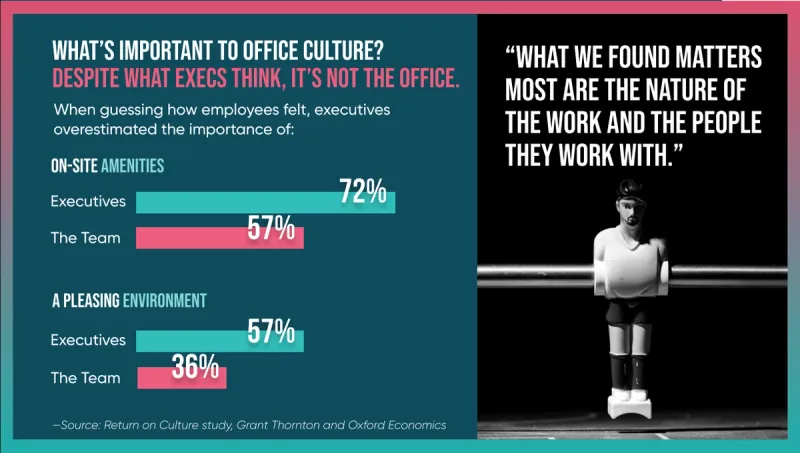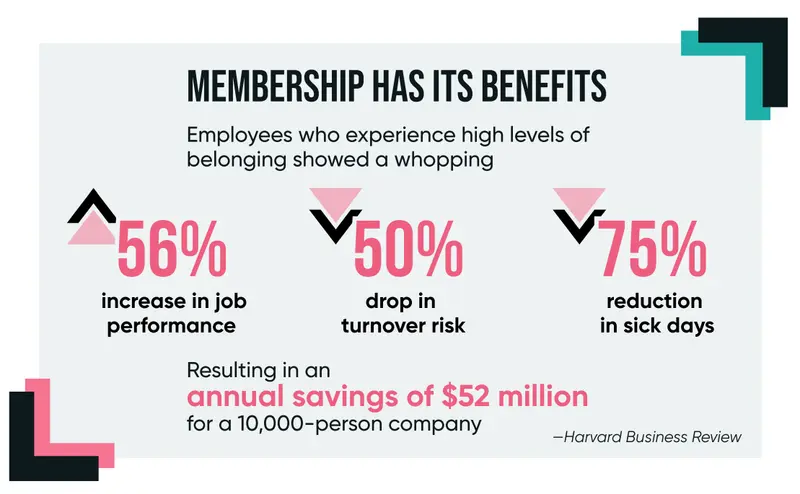
The Death of Hustle Culture and the Rise of Experiential Sales Culture
Hustle culture is out. Learn why top-performing sales teams are embracing a more sustainable, connected, and recognition-driven culture��—and how it’s driving real results.
0 min read.
For decades, hustle culture was seen as the ultimate formula for sales success. The mantra was simple: work longer, grind harder, and push through exhaustion in the name of results. If you weren’t answering emails at midnight or pounding the phones until the last minute, were you really committed?
That model of success, measured by exhaustion and hours logged no longer works. Sales teams today expect something different: clarity, connection, and recognition. And they’re not afraid to walk away from companies that don’t deliver it.
Just 9% of white-collar workers say they want to return to traditional office life. 64% would consider quitting if forced back full-time (Grant Thornton). For leaders holding on to the idea that a buzzing sales floor equals culture, it’s time to rethink the playbook.
Culture isn’t about where people sit. It’s about what they experience every day. The era of hustle culture is gone. A new approach has emerged—one that puts people at the center of performance: experiential sales culture.
Why Hustle Culture Stalled
Hustle culture wasn’t just a work style. It became an identity, celebrated in job postings, LinkedIn posts, and even leadership mantras. The glorification of late nights and 70-hour weeks was sold as ambition and resilience. But in practice, it left teams burned out and disengaged. Sales environments became competitive to the point of hostility.
Tom Slocum of the SD Lab, a 15-year sales veteran, recalled it vividly:
“The AE’s fought with the SDR’s. The SDR’s fought with the AE’s. It was a function of high numbers, high output.”
When culture rewards only star performers, collaboration disappears. Middle performers, who often make up the bulk of revenue are ignored. Burnout becomes common. And when motivation is tied solely to pressure, creativity and problem-solving suffer.
As work evolved and employees gained more control over where and how they worked, hustle culture had nowhere to hide. It became clear that performance cannot be sustained through constant grind. It needs to be fueled by purpose, support, and recognition.
The Rise of Experiential Sales Culture
If hustle culture was about activity at all costs, experiential culture is about how work feels every day. It’s not defined by office perks or trendy decor. It’s defined by trust, belonging, and shared success.
As Erica O’Malley, former Grant Thornton partner, explained:
“What we found matters most to employees are the nature of the work and the people they work with.”
For years, companies confused perks with culture. Ping-pong tables, kombucha taps, and Friday socials were marketed as engagement tools. But people don’t stay for free snacks. They stay for meaningful work, recognition, and respect.
Experiential culture moves past gimmicks. It creates clarity, builds connection, and celebrates progress in real time. It recognizes that culture isn’t an environment. It’s an experience, deliberately designed and reinforced through every interaction.
What Sales Reps Value Today
Modern sellers are clear about what matters to them. They want flexibility, purpose, and recognition—not a return to old-school grind. Research confirms this shift:
- 64% of employees would quit if forced back into the office full-time (Grant Thornton)
- 57% said they felt disrespected at work, a hallmark of a toxic culture (Pew Research)
- Employees who experience belonging see a 56% increase in job performance and a 50% drop in turnover risk (Harvard Business Review)

And this isn’t just about making people happy. Healthy cultures drive business outcomes. Companies with strong cultures are 1.5 times more likely to report revenue growth of over 15% and 2.5 times more likely to see significant stock price increases (Oxford Economics).
Culture has always mattered. Now it’s measurable.
The New Playbook for Sales Culture
Creating a culture that works in today’s environment starts with intention. It doesn’t happen by accident, and it doesn’t live in perks. It lives in principles, processes, and practices that define how your team works and feels every day.
1. Make culture intentional
Define the values you want to see in action. Collaboration, recognition, and ownership should show up in your rituals, meetings, and performance reviews, not just on posters or company websites.
2. Create predictable communication rituals
The energy of the sales floor has to be replaced with structured moments of connection. Daily huddles for priorities and wins. Weekly syncs that mix performance updates with recognition. Monthly team sessions focused on learning and feedback. Predictability creates trust, and trust creates culture.
3. Balance autonomy with accountability
Flexibility is non-negotiable, but autonomy without visibility leads to chaos. Use shared dashboards and real-time data so everyone understands expectations and progress. Accountability should feel fair, not forced.
4. Recognize effort, not just outcomes
Recognition is one of the most powerful cultural levers. Celebrate top performers, yes—but also recognize milestones, learning, and resilience. Visibility breeds motivation. Recognition reinforces belonging.
5. Prioritize belonging as a business outcome
Belonging isn’t a buzzword. It drives retention, engagement, and performance. Make it tangible through inclusive rituals, open communication, and spaces where every voice matters.
The ROI of Experiential Culture
Culture is often misunderstood as “soft.” In reality, it’s one of the hardest metrics in your financial performance. Organizations that invest in healthy cultures see measurable returns:
- S&P 500 companies save $156 million annually in turnover costs when culture is strong (Oxford Economics).
- Companies with extremely healthy cultures are 1.5 times more likely to achieve significant revenue growth.
- Employees who feel they belong show a 56% boost in job performance and take 75% fewer sick days (Harvard Business Review).

This isn’t about happiness for its own sake. It’s about creating an environment where engagement, accountability, and performance reinforce each other. Experiential culture is a growth strategy, one that pays for itself many times over.
Final Thoughts
The shift from hustle culture to experiential culture isn’t optional. It’s happening across industries, and the leaders who embrace it will outperform those who don’t. The question is, how do you make this shift real inside your team?
That’s where SalesScreen comes in. Everything we’ve talked about; visibility, recognition, belonging—becomes actionable through our solution. SalesScreen makes performance data transparent, celebrates achievements in real time, and uses gamification to make progress exciting for every rep. It turns culture from an abstract concept into something your team experiences every single day.
Culture is no longer tied to an office. It’s tied to how your team feels and performs. And with SalesScreen, you can make that experience consistent, motivating, and measurable. The hustle era is over. The future of sales culture is intentional, inclusive, and designed for engagement. Let’s build it together.







